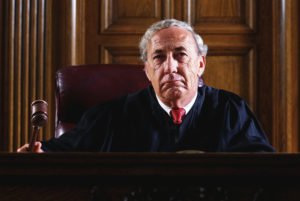If you are charged with a criminal offense, the State has the burden of proving your guilt beyond a reasonable doubt. As a defendant, you have a constitutional right to know what evidence the State plans to use against you at trial. Did you also know, however, that the State is obligated to provide you with evidence that might exonerate you? A Murfreesboro criminal defense lawyer at Bennett, Michael & Hornsby explains exculpatory evidence and how it applies in a criminal trial.
Criminal Prosecution Basics and Discovery
Once the State (via the Prosecuting Attorney’s Office) decides to file charges against a defendant, the criminal prosecution process begins. Shortly thereafter, both sides will engage in “discovery.”
Exculpatory Evidence and the State’s Obligation
Brady v. Maryland, 373 U.S. 83, the seminal case on exculpatory evidence was decided back in 1963. In that case, two defendants were charged with capital murder. One defendant admitted to being there at the time of the murder but claimed that the other defendant committed the murder. Counsel for that defendant had requested to examine the extrajudicial statements made by the other defendant. Although the prosecutor showed counsel several statements, one in which the other defendant admitted the actual killing was withheld by the prosecution. The case made its way to the Supreme Court which held that suppression by the prosecution of evidence favorable to an accused violates due process where the evidence is material either to guilt or to punishment, irrespective of the good faith or bad faith of the prosecution.
Limits to the Exculpatory Evidence Requirement
While the Brady rule makes it clear that the State has a duty to disclose exculpatory evidence in its possession, custody, or control, the rule does not require the State to search for evidence that might exonerate a defendant. Exactly what evidence qualifies as exculpatory evidence can also be up for debate. For example, imagine that a woman was assaulted on one side of town on a specific date. Based on her description, a defendant was arrested and charged with the crime. The defendant claims he was 100 miles away waiting to board a train at the time of the assault. He remembered wearing his favorite black t-shirt with the number 21 on it. Numerous cameras in the immediate area captured hours of film showing hundreds of men wearing black shirts. The prosecutor may not be legally obligated to share all pictures of men wearing black shirts that day as that is a generic description; however, if the prosecution has a photo/video of a man meeting the defendant’s description wearing a black shirt with the number 21 on it they would be required to share that as it clearly meets the definition of exculpatory evidence.
Furthermore, while the duty to disclose exculpatory evidence is a well-established rule, the reality is that it is often difficult to know, much less prove, that the State has violated the rule. All too often it does not come to light until years after a conviction that the State had exculpatory evidence that was kept from the defense. When that is the case, a defendant must prove first that the exculpatory evidence was in the hands of the prosecution and was never shared with the defense and second that the inclusion of the evidence might have reasonably resulted in a different outcome.
Contact a Murfreesboro Criminal Defense Lawyer
If you are facing criminal charges in Tennessee it is in your best interest to consult with an experienced Murfreesboro criminal defense lawyer at Bennett, Michael & Hornsby as soon as possible. Contact the team today by calling 615-898-1560 to schedule your free appointment.
- When Are Miranda Warnings Required? - April 16, 2024
- 5 Benefits of Mediation in a Tennessee Divorce - April 9, 2024
- Understanding White-Collar Crimes in Tennessee - April 5, 2024







